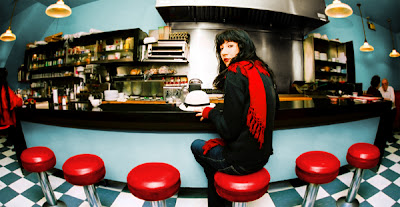 Jennifer Norton
Jennifer Norton
Well, as we choke on the ubiquity of war, pollution, crumbling social structures and global malaise I am preparing a solo show. How dandy!
Here is the more polite, less misanthropic answer. I am finishing a master of fine arts program at The University of Guelph, then will immediately embark upon a seven-month road trip that ends in the Yukon where my partner and I have an artist residency.
2) Why verbatim theatre?
The thing I love most about verbatim theatre is that it forces you to get out there and start talking to people. It also demands an outcome that is directly reflective and responsive to what the community is interested in, since it is their words that ultimately make up the play. If no one is interested in talking about it, there can’t be a play about it (and thank God for that!).
I also think it’s so fascinating to recognize and celebrate how people actually talk – with the stutters, slang, incomplete sentences, how often everyone says ‘like’. And I think audiences often like knowing that what they are watching is ‘based on a true story’, especially when the material is particularly outrageous. Truth really is stranger – and funnier – than fiction.
3) Do you have any unifying theories that have come out of your study of the Meisner Technique?
I’ve read a slew of books of actor’s talking about the craft and the only word or concept that appears without fail is “truth”. There are so many approaches to try to achieve truth; Meisner’s just one of them. Unifying theories or comprehensive “systems” are dangerous. No technique can achieve truth if it’s followed to the letter. They’ll give you a jump start or point you in a direction that is potentially good, but it’s such a complex, yet basic thing to achieve truth, that if you try to force a system on it, it’ll disappear.
4) Do you have any unifying theories that inform your approach to lighting design, generally?
I can think of some: Don’t be afraid to try new things, always take risks. Don’t try to to cut corners. Always do what’s good for the show, remember that your design is just one element in the big picture. Try to remain practical, don’t fall in love with your own work. Trust your instincts. Be very, very organized and do your homework.
I always try to light theatre like I light dance, I use very little front light, and as much side and back light as possible. Low side light (shin busters) and diagonal backs are my favorite lighting positions. I like bold choices with colour and patterns, while maintaining a certain subtlety. I try to do precise lighting so I use a lot of specials and usually have a lot of cues. Having said all that – simplicity is a real key and very often less is more.
5) How has your interest in American politics influenced your ideas about theatre?
American politics have all the great elements of drama – farce, tragedy, absurdity, heroes, villains, clowns – the stakes are always high and although much focus has been put on the circus-like atmosphere of modern American politics, we all want to know what the next Act will bring. The Bush administration has felt like the usurping power in one of Shakespeare’s histories. With Donald “Rummy” Rumsfeld emerging as chief rhetorician, uttering such poetic lines as, “The absence of evidence, is not evidence of absence,” when no WMDs were found in Iraq. That’s a beautiful line!
I guess what I’m saying is that my passion for American politics deepens my understanding of theatre, and vice-versa.
6) How important is it for theatre artists to be out there seeing lots of shows?
Oh lordy loo. You can’t not do it. Whether you spent three years in a theatre program or not, going to shows acts as a major training ground for a young artist. And as you become more established, I think it prevents you from getting too complacent about your own work. Seeing shows is the only thing that can hone your aesthetic; the only stage on which it’s possible to really test and challenge folks like Judith Butler and Richard Schechner.
I find that sitting in the audience has clarified my artistic goals more than acting on the stage itself. I am, though, an engaged audience member. I attend to a performance so actively that it can cause involuntary spasms and vocalizations. Going to shows MUST be about engaging with the piece on all levels. I also think it’s important to go outside your own discipline. It’s too easy to become enamored of a particular methodology when the creative process in theatre, dance, visual arts, music, media arts and design could be enriched by a little cross-pollination.
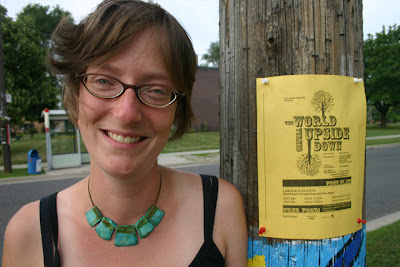 Kate Cayley
Kate CayleyAn ever-changing concept. Especially since I think, for women of my generation in this country (including myself), freedom is so taken for granted that feminism is often a word to be avoided, having associations of something doctrinaire, and maybe slightly prissy.
Feminism is an extremely loaded word – so much of it has been seriously flawed through concerning itself mainly with the rights of upper-income women to uncritically wield the same power as upper-income men, in the same limited sphere. I can’t get worked up about female stockbrokers making slightly less than male stockbrokers, since the fundamental assumption that certain kinds of work can carry a grossly inflated salary isn’t really questioned. However, it’s a good word to keep (and love).
In theatre, or art in general, I used to think it meant telling stories about women. I still think that, but now I also think it means women telling stories –about women, about men, about anything – with the same creative scope and freedom as men have always had. And perhaps telling lots of stories about men, and not censoring ourselves into feeling that we must tell stories only about women in order to be good feminists – god knows male novelists and playwrights have told stories from the female perspective without being accused of neutering themselves. Gender’s a fun thing. Play with it.
8) What can theatre makers do to further stretch their marketing and PR spend?
Building audiences is all about building relationships, so keeping a good database is important. Don’t only “talk” to them if you want them to buy a ticket. Keep them informed as to what you are doing year round. So, doing great e-blasts is very much OK as long as it doesn’t become intrusive.
NOW and eye weekly love to do media sponsorships and will up the buy, which allows for the advertising dollar to be stretched.
Don’t pester the press. A good clear press release goes a long way to being well received. Words like “unique” and “exceptional” and “creative” don’t cut it anymore – people like Jon Kaplan have been doing this stuff for years and know when a press release is full of shit.
 Simon Ogden
Simon Ogden
What kind of stupid fucking question is that? You’re lucky you live on the other side of the country Mackenzie, or I’d punch you right in the face.
Actually, my first hit was: anger? Me? Whaddya mean, I’m not angry . . . am I? And of course, a look back at my body of work to date reveals that there’s levels of anger in the genesis of all of it, which, upon further consideration, is as close an approximation to my personal definition of the true nature of art as I have ever considered. The play I’m working on right now, set in a bar, is entirely about the consequences of anger, as a matter of fact. Revelatory, thank you.
10) How has your creative process changed since you graduated from theatre school in 1986?
It’s easier and harder. That is to say, there are fewer questions but more answers. That is to say, as one ages one’s concerns narrow but the possibilities become endless. That is to say, I know what I want but I’m not sure what everybody else wants.
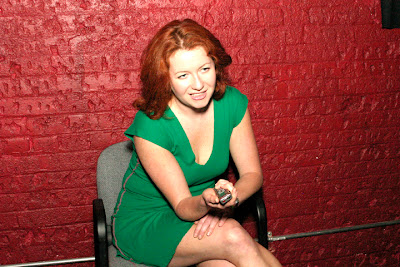
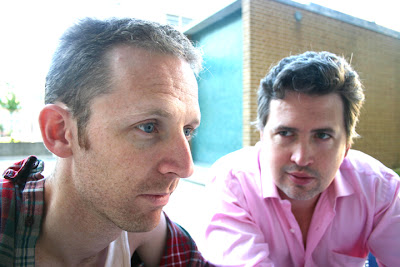

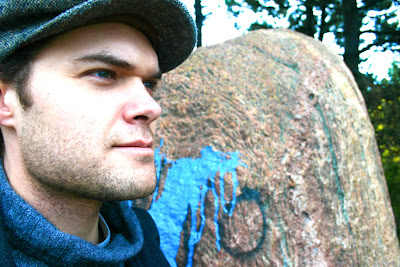
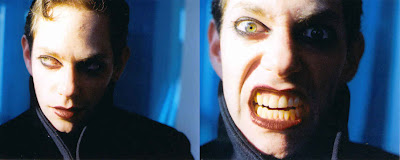
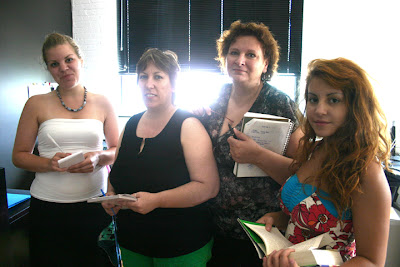
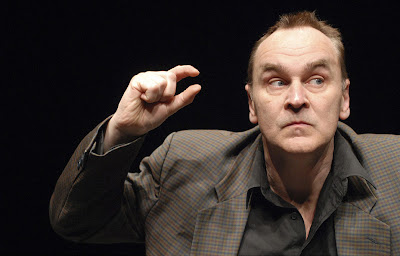
Can I just say how strange (and oddly exhilarating) it was to have the esteemed playwright Simon Ogden threaten to punch me in the face? Thank god geography, and cooler heads prevailed!
(Though Simon, I am serious about making that trip out West. So clear them hydro-pon-tic tumbleweeds and shutter the winda’s on the Lazy Dayz saloon . . . they’s gonna be a rumble out on the promenade.)
Ha! That’s awesome. I only just now read this note (so many buttons to click in the blogoshpere). I’m thrilled that you’re coming out to the left coast and can’t wait to meet face-to-face. I would love to introduce you to the crew and talk the shit out of some theatre. I’ve come to consider Praxis as a cousin theatre company, and talk about you guys often with mine. Looking forward to welcoming you to our theatre territory…